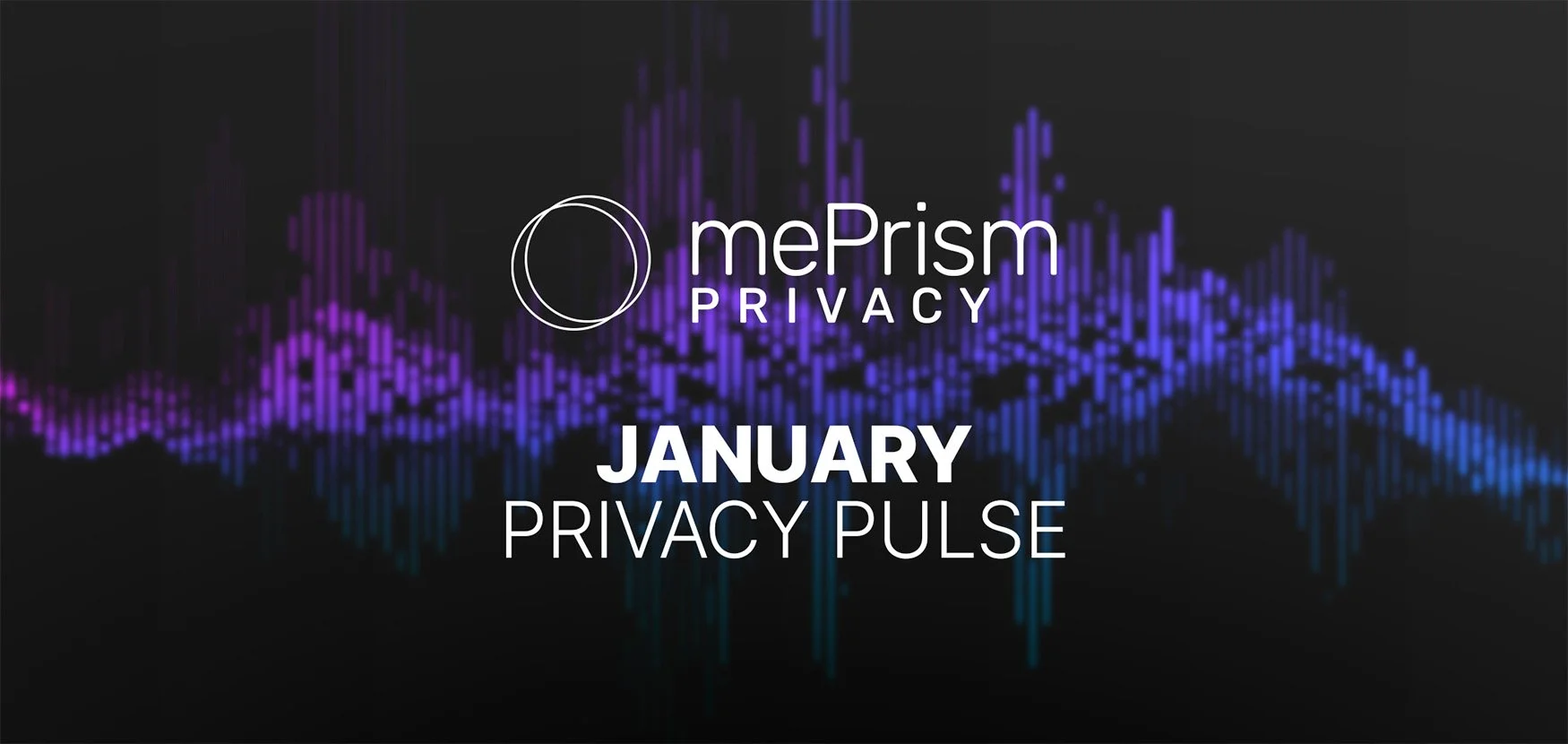LexisNexis Breach: Protect Your Personal Data from Data Brokers Part 2
LexisNexis breach exposed over 364,000 Americans Part 2
Learn how mePrism helps remove your personal data from dangerous data broker networks.
The U.S. government's reliance on data brokers like LexisNexis Risk Solutions to acquire sensitive personal information without judicial oversight represents a systemic erosion of Fourth Amendment protections. While this practice may comply with narrow legal interpretations of the third-party doctrine, it fundamentally violates the amendment’s spirit by enabling warrantless surveillance at scale, circumventing constitutional safeguards against unreasonable searches, and creating a shadow ecosystem of privatized data collection that undermines individual privacy rights.
The Fourth Amendment’s Core Protections
The Fourth Amendment guarantees citizens protection against "unreasonable searches and seizures," requiring law enforcement to obtain warrants based on probable cause before accessing private information. This framework was designed to prevent arbitrary government intrusion into personal lives and maintain a balance between state power and individual liberty.
However, two legal doctrines have enabled agencies to bypass these requirements:
The third-party doctrine, which holds that individuals forfeit privacy expectations for information voluntarily shared with businesses (e.g., phone records, bank transactions).
The "voluntary transaction" theory, where courts deem data broker sales to the government as consensual commercial exchanges rather than state-compelled disclosures.
These interpretations ignore modern realities: individuals have no meaningful choice but to share data with apps, services, and devices in daily life, while brokers aggregate and repackage this information into invasive profiles without user consent.
LexisNexis’ Government Contracts and Surveillance Infrastructure
LexisNexis has become a critical partner in federal surveillance through multimillion-dollar contracts with agencies including:
Immigration and Customs Enforcement (ICE): A $22.1 million agreement (2021–2026) for tools to track noncitizens using driver’s licenses, utility bills, and familial relationship data.
Department of Justice (DOJ): A six-year, multimillion-dollar contract for Accurint® Virtual Crime Center, which combines public records with law enforcement databases to profile individuals.
Department of Homeland Security (DHS): Purchases of location data to monitor immigrants and activists.
These contracts provide agencies with access to:
Location histories revealing movements to medical clinics, protests, or religious institutions.
Social Security numbers, driver’s licenses, and familial networks used to link individuals to extended communities.
Financial and employment data deployed in fraud detection systems.
Notably, LexisNexis’ government division reported contracts with 70% of local law enforcement agencies and 80% of federal agencies, creating a de facto national surveillance network.
How Bulk Data Purchases Violate the Spirit of the Fourth Amendment
1. Evading Probable Cause Requirements
The Fourth Amendment mandates that warrants specify the "place to be searched, and the persons or things to be seized." By purchasing bulk datasets covering millions of people, agencies engage in general warrants. This is exactly the type of indiscriminate search the Founders sought to prohibit. For example:
The FBI used LexisNexis’ Accurint tools to map connections between protestors during the 2020 racial justice demonstrations without individualized suspicion.
ICE combined LexisNexis data with license plate readers to track vehicles near abortion clinics post-Dobbs, targeting both patients and providers.
2. Exploiting the Third-Party Doctrine’s Digital Age Flaws
While the Supreme Court upheld warrantless access to phone records in Smith v. Maryland (1979), modern data brokers collect exponentially more sensitive information than the metadata at issue in that case. LexisNexis’ profiles often include:
4,000+ data points per individual, including biometrics, online behavior, and health-related purchases.
Real-time location data precise enough to identify visits to therapists or addiction recovery centers.
Legal scholars argue that the third-party doctrine’s application to such granular, aggregated data perverts the Katz test’s "reasonable expectation of privacy" standard, as no individual can reasonably anticipate their fragmented digital traces being weaponized into a surveillance dossier.
3. Privatizing the Surveillance State
By outsourcing data collection to LexisNexis, agencies avoid the political and legal scrutiny that would accompany direct mass surveillance programs. This creates a chilling effect on constitutional rights:
First Amendment impacts: Immigrant rights organizers reported self-censorship after learning ICE accessed their LexisNexis profiles.
Fourth Amendment circumvention: The DOJ’s Virtual Crime Center allows agents to bypass warrant requirements by querying pre-purchased datasets rather than seeking new court orders.
Congressional investigators found that LexisNexis’ government revenue grew from $34 million in 2020 to over $528 million by 2023, incentivizing the expansion of surveillance products tailored to agency needs.
Legal Challenges and Legislative Responses
Courts and lawmakers have begun confronting this issue:
Fifth Circuit ruling (2024): Declared geofence warrants unconstitutional, noting that purchasing location data enables "exploratory rummaging" akin to general warrants.
Fourth Amendment Is Not For Sale Act (2024): Passed by the House to prohibit warrantless purchases of data brokers’ information.
CFPB proposed rule (2024): Would classify data brokers as consumer reporting agencies, subjecting them to Fair Credit Reporting Act (FCRA) accuracy and consent requirements.
However, LexisNexis has lobbied aggressively against these measures, arguing that its government contracts are essential for fraud prevention. This claim is undermined by its $1.2 billion unemployment insurance contract with the Department of Labor, which failed to stop $45 billion in pandemic-era fraud.
Conclusion: Restoring Constitutional Balance
The LexisNexis-government partnership exemplifies how technological and legal loopholes have eroded Fourth Amendment protections. To realign data practices with constitutional values, policymakers must:
Close the data broker loophole by passing the Fourth Amendment Is Not For Sale Act.
Update the third-party doctrine to reflect modern data aggregation capabilities, as proposed in Carpenter v. United States.
Impose transparency requirements on government data purchases, including public reporting of contracts and usage.
Until these reforms occur, the government’s warrantless access to LexisNexis’ troves will continue to enable surveillance that James Madison and other Framers would have recognized as the very "general warrants" the Fourth Amendment was designed to abolish.
Where mePrism Helps
At mePrism, we empower individuals to take control of their personal data. Our platform enables you to:
Identify which data brokers hold your information.
Submit opt-out requests to remove your data from their databases.
Monitor your digital footprint to prevent unauthorized data collection.
By using mePrism, you can actively protect your privacy and assert your rights in the digital age.
FAQ
-
Names, phone numbers, home addresses, email addresses, Social Security numbers, driver's license numbers, and dates of birth were among the data exposed.
-
No. LexisNexis stated that no financial or credit card information was involved in the breach.
-
Remove your personal information from data broker databases using automated services like mePrism. This helps reduce your exposure to breaches and identity theft.
-
Manual opt-outs are difficult and temporary. Automated services with ongoing monitoring, like mePrism, are more effective long term.
-
Yes. Agencies buy mass records from data brokers, bypassing the traditional warrant process and weakening your Fourth Amendment protections.
Ready to try mePrism yourself?
At mePrism, we help you take back control of your personal data. Our service scans the web for your exposed personal information—like your name, address, and contact details—and removes it from data broker sites that sell it without your consent. Whether you're protecting your privacy, reducing spam, or guarding against identity theft, we make the process simple, secure, and effective. Ready to clean up your online footprint?
Click here to create your Free Basic account.Explore more from Our Team
Browse more posts written by our team to help you stay in control.
Be Part of the Conversation





